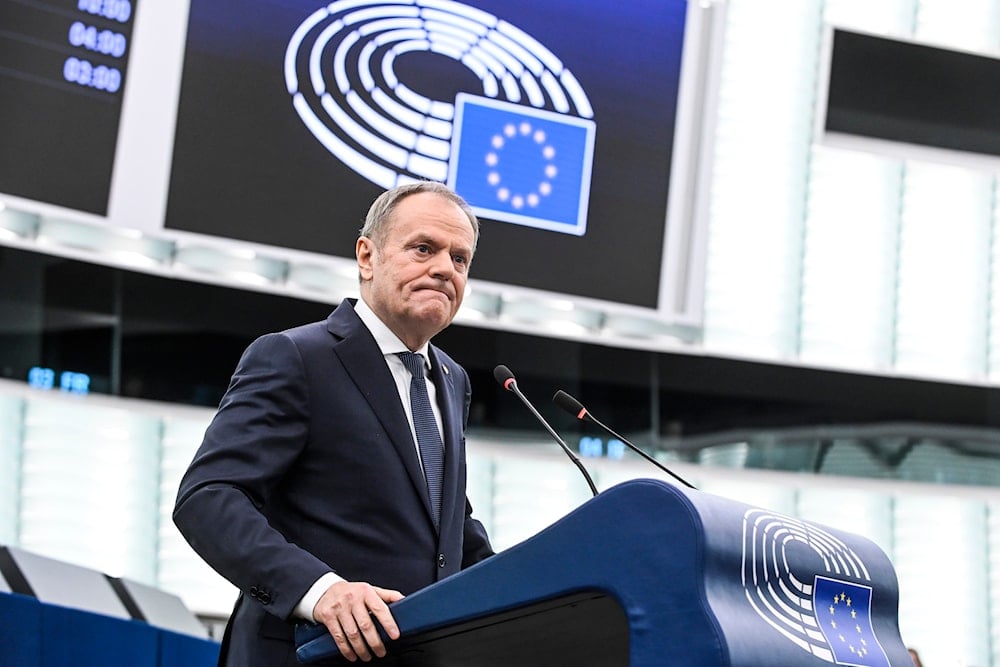EU must arm itself to ‘survive’ uncertain world: Polish PM
Polish Prime Minister Donald Tusk stated that the European Union must strengthen its defenses to "survive" amid an increasingly uncertain global order.
-

Polish Prime Minister Donald Tusk delivers his speech during the presentation of the program of activities of the Polish Presidency, at the European Parliament, on January 22, 2025, in Strasbourg, eastern France. (AP)
Polish Prime Minister Donald Tusk urged the European Union on Wednesday to strengthen its military capabilities to "ensure survival" in an increasingly unstable global order, calling on member states to boost defense spending.
In a session of the European Parliament in Strasbourg, France, Tusk said that "if Europe wants to survive, it must arm itself," adding that Poland holds the rotating presidency of the European Union for six months until June. According to him, during this period, its top priority is to strengthen the security of the 27-nation bloc.
That said, the Polish leader has reinforced the call as Russia’s military operation in Ukraine approaches its third year.
In line with this, US President Donald Trump, who assumed office this week, has called on NATO allies to increase defense spending, urging them to allocate at least 5% of their economic output—more than double the alliance’s current target of 2%.
NATO won't back Trump's new defense spending target
In response to Trump's recent statements, NATO said it is unlikely to adopt his proposal for a 5% defense spending target but may exceed its current 2% goal, officials and analysts said on January 11. Trump's suggestion, made earlier this month, calls for a significant increase that no NATO country, including the US, currently meets.
Trump's comments, made during a press conference that also drew attention to Greenland, Canada, and Panama, reiterated his focus on NATO spending and threats to withhold protection from allies not meeting the target.
NATO officials acknowledged the need for increased defense spending but rejected the 5% target, which analysts deemed politically and economically unfeasible for most members, requiring hundreds of billions in additional funding.
However, officials said a new target is likely to be set at the NATO summit in The Hague in June, driven by concerns that Russia may attack a NATO country after Ukraine and influenced by Trump’s rhetoric.
That stated, the main uncertainties are what the new target will be and whether it will meet Trump's expectations. Some anticipate NATO’s 32 members will eventually agree on a 3% GDP target, but this could be challenging for many, as most are still struggling to meet the 2% goal set a decade ago.
NATO's total defense spending for 2024 was estimated at $1.474 trillion, with the US contributing $968 billion and European nations and Canada $507 billion. The average defense spending across NATO was about 2.71% of GDP.
Some officials and analysts view Trump's 5% suggestion as a starting point for negotiations, expecting he may ultimately agree to a target closer to 3%.
During last year's US presidential election campaign, Trump proposed a 3% defense spending target, noting it would require a roughly 30% increase in defense budgets for most NATO countries.

 3 Min Read
3 Min Read








